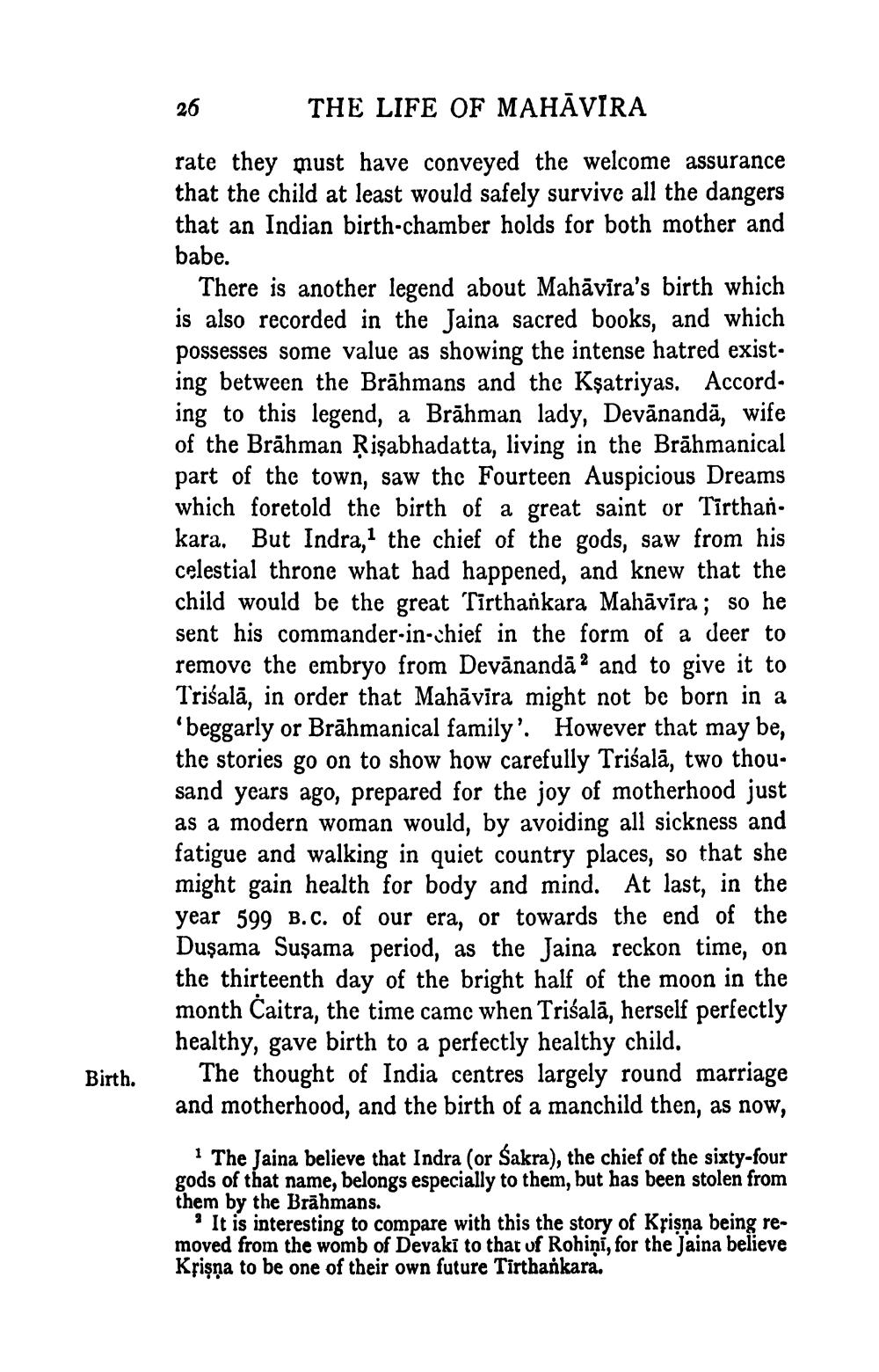________________
26
THE LIFE OF MAHĀVIRA
rate they must have conveyed the welcome assurance that the child at least would safely survive all the dangers that an Indian birth-chamber holds for both mother and babe.
There is another legend about Mahävira's birth which is also recorded in the Jaina sacred books, and which possesses some value as showing the intense hatred exist. ing between the Brāhmans and the Kşatriyas. According to this legend, a Brāhman lady, Devānandā, wife of the Brāhman Rişabhadatta, living in the Brāhmanical part of the town, saw thc Fourteen Auspicious Dreams which foretold the birth of a great saint or Tīrthankara. But Indra, the chief of the gods, saw from his celestial throne what had happened, and knew that the child would be the great Tirthankara Mahāvira; so he sent his commander-in-chief in the form of a deer to remove the embryo from Devānandā? and to give it to Trisalā, in order that Mahāvīra might not be born in a 'beggarly or Brāhmanical family'. However that may be, the stories go on to show how carefully Trišalā, two thou. sand years ago, prepared for the joy of motherhood just as a modern woman would, by avoiding all sickness and fatigue and walking in quiet country places, so that she might gain health for body and mind. At last, in the year 599 B.C. of our era, or towards the end of the Duşama Suşama period, as the Jaina reckon time, on the thirteenth day of the bright half of the moon in the month Caitra, the time came when Trišalā, herself perfectly healthy, gave birth to a perfectly healthy child.
The thought of India centres largely round marriage and motherhood, and the birth of a manchild then, as now,
Birth.
1 The Jaina believe that Indra (or Sakra), the chief of the sixty-four gods of that name, belongs especially to them, but has been stolen from them by the Brāhmans.
' It is interesting to compare with this the story of Krisna being removed from the womb of Devaki to that of Rohini, for the Jaina believe Krişna to be one of their own future Tirthankara.




